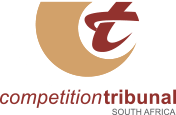1. Merger Alert: Outcome of mergers decided by the Tribunal - 24 February 2026
Type of matter
Large merger
Parties involved
Exemplar REITail Ltd and Goldbroz Investments (Pty) Ltd
Tribunal Decision
Approved without conditions
Issued By
On behalf of the Competition Tribunal of South Africa
